Contributors
Authors
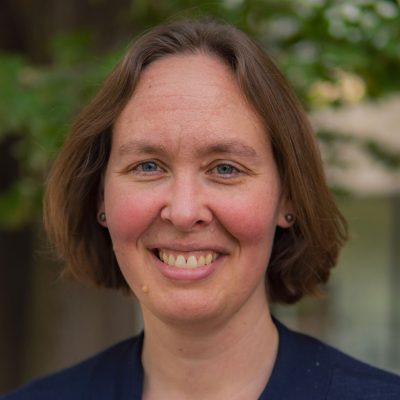
name: Beth Buyserie
institution: Utah State University
Beth Buyserie is the Director of Composition and Associate Professor of English at Utah State University. She earned her Ph.D. in Cultural Studies and Social Thought in Education from Washington State University. Her teaching and scholarship focus on composition, writing program administration, professional learning, and critical pedagogies. Dr. Buyserie teaches graduate pedagogy and undergraduate composition courses, mentors all teachers in USU’s Composition Program, and has received multiple awards and recognitions for her commitments to teaching and inclusive excellence. As a proponent of interdisciplinary dialogue, she provides pedagogy workshops to faculty across disciplines, and she chairs USU’s interdisciplinary committee for all communication literacy and communication intensive courses.
Dr. Thurston is the founding Executive Director of the Center for Empowering Teaching Excellence in the Office of the Provost and Executive Vice President at Utah State University. Travis earned his Master of Educational Technology degree from Boise State University, and earned his Ph.D. in Curriculum and Instruction with focus on Instructional Leadership from Utah State University. His teaching and scholarship center on digital-age teaching and instructional design approaches, and creating autonomy-supportive learning environments. He publishes interdisciplinary studies on the scholarship on teaching and learning, and is the production editor for the Empower Teaching Open Access Series.

name: Adena Rivera-Dundas
institution: Utah State University
Dr. Adena Rivera-Dundas is an Assistant Professor of English at Utah State University. Her research examines how Black American scholars, poets, and novelists deploy personal archives to disrupt oppressive epistemologies. Working at the intersections of personal narrative, Black feminism, and affect studies, she examines the ways in which contemporary writers use embodied experience as evidence to create intimacy with readers while simultaneously resisting easy, unearned access to Black subjectivities. She is currently working on a book titled Intimate Scholarship: Embodying the Personal in Black Feminist Writings.
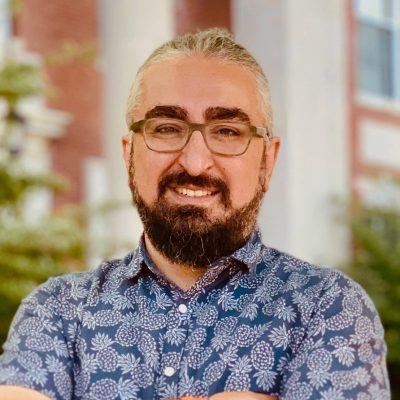
name: Ali Söken
institution: University of Massachusetts Amherst
Ali Söken is a Ph.D. student in Teacher Education and Curriculum Studies at UMass Amherst. My research focuses on critical media literacy and teacher education, and in my dissertation, I am examining how future teachers learn media literacy and how to teach it effectively. I am also an instructor teaching a course on Education and Film that explores issues of race, gender, and social class. In the past, I have worked on various projects in the fields of computational thinking, scientific literacy, and technology integration, and I have taught a range of courses such as Theories of Learning, Introduction to Special Education, and Education and Film. Prior to beginning my Ph.D. program, I worked as an instructional designer for an e-learning company and as a project manager for a non-governmental organization.
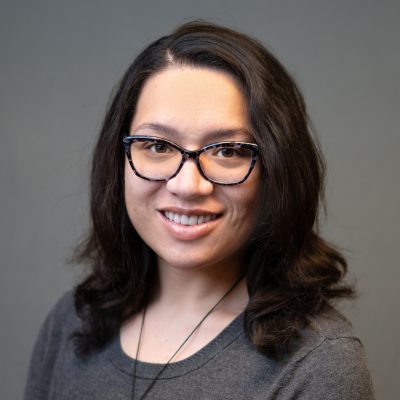
name: Belinda 'Ofakihevahanoa Fotu
institution: Utah State University
Belinda ‘Ofakihevahanoa Fotu (‘Ofa) has been a high school English teacher for twelve years, primarily teaching sophomore students Language Arts and senior students College Writing for their UVU G.E. college credit. ‘Ofa has her B.A. in English-Teaching from BYU and an M.Ed. from SUU where her thesis research was on building critical consciousness in writing curriculum to improve student writing skills. She is currently working on her dissertation for a Ph.D. in Education from USU in the concentration of Cultural Studies. Her research centers the Tongan American diaspora and generational cultural knowledge transfer.
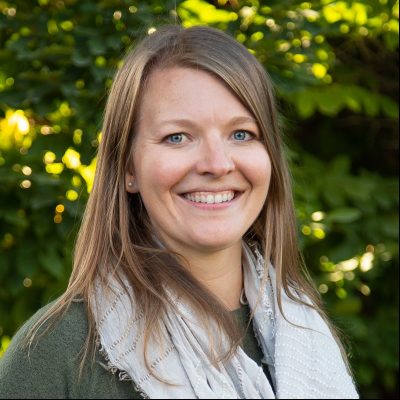
name: Breanne Litts
institution: Utah State University
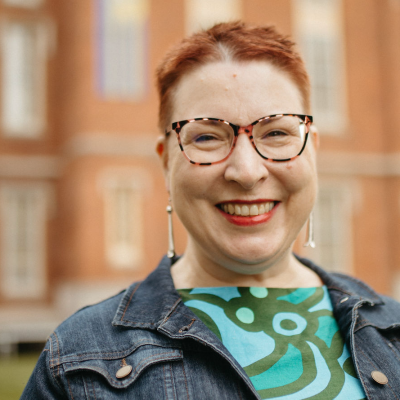
name: Catherine Denial
institution: Knox College
Catherine J. Denial (she/her) is the Bright Distinguished Professor of American History and Director of the Bright Institute at Knox College in Galesburg, Illinois. She is the author of Making Marriage: Husbands, Wives, and the American State in Dakota and Ojibwe Country (2013), multiple essays on pedagogical practice, and will publish her next book, A Pedagogy of Kindness, in 2024.
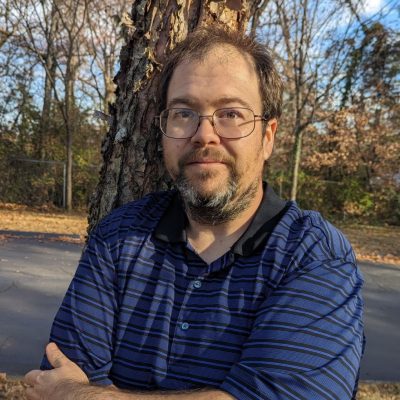
name: Chris Mayer
institution: University of Tennessee, Knoxville
Chris is a graduate student at the University of Tennessee, Knoxville. He is interested in writing pedagogies for both undergraduate and graduate learners.
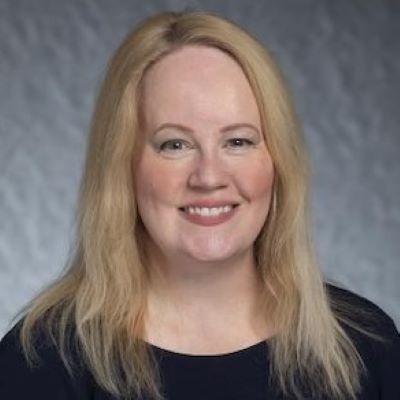
name: Clancy Ratliff
institution: University of Louisiana at Lafayette
Clancy Ratliff is Professor of English and Associate Dean of the College of Liberal Arts at the University of Louisiana at Lafayette. Her research and teaching interests are in feminist rhetorics, environmental rhetorics, writing program administration, and copyright and authorship. She has published research in Women’s Studies Quarterly, Kairos, Pedagogy, and other journals and edited collections. She is involved in several community advocacy organizations, including Sierra Club Delta Chapter, Move the Mindset, Citizens Climate Lobby, and the Acadiana Regional Coalition on Homelessness and Housing.
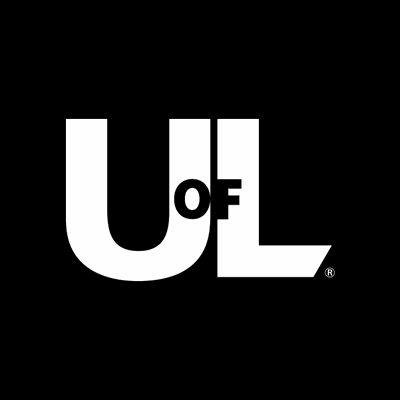
name: Cora Alward
institution: University of Louisville
University of Louisville English 105: Honors Composition Student, Spring 2023

name: Daniel Frank
institution: UC Santa Barbara
Daniel Frank (he/him) teaches first year composition, multimedia writing, and technical writing at the UCSB Writing Program. His research interests include game-based pedagogy, virtual text-spaces, passionate affinity spaces, connected learning, and the intersections of AI technology and pedagogy. Dan is continually interested in helping students find their own passion as they learn to create, play, and communicate research, argumentation, and writing across genres in the digital age.
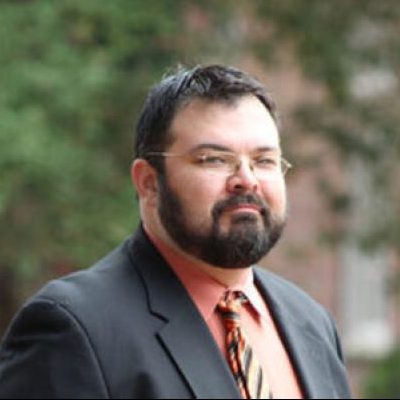
name: Daniel Hutchinson
institution: Belmont Abbey College
Daniel Hutchinson is an Associate Professor in the History Department and directs the Digital Humanities program at Belmont Abbey College. His teaching and research center on 20th century U.S. history and exploring AI methods for historical research and pedagogy.
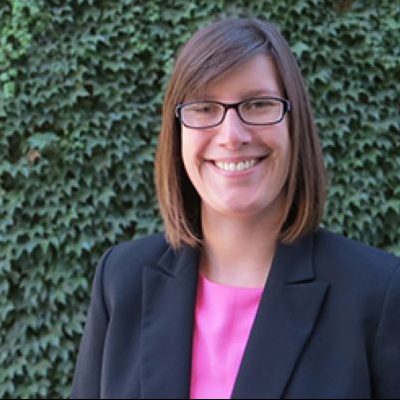
name: Dory Rosenberg
institution: Utah State University
Dory Rosenberg (she/her) is a Reference & Instruction Librarian at Utah State University Libraries and has served as the Libraries’ Instruction Coordinator since 2020. She earned her MLIS at the University of Pittsburgh and an MA in English from Kansas State University. Her current research interests focus on library instruction program assessment and development.
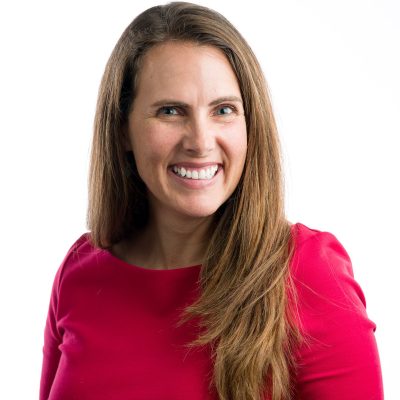
name: Emma Mecham
institution: Utah State University
Emma Mecham is a Professional Practice Assistant Professor in the Emma Eccles Jones College of Education and Human Services School of Teacher Education and Leadership. Both her research and teaching work focus on the preparation and practice of teachers through understanding the foundations of education using historical, sociological, political science, and philosophical lenses.
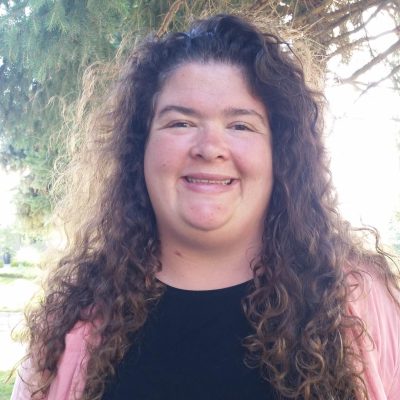
name: Erin Jensen
institution: Belmont Abbey College
Erin B. Jensen (she/hers) is an Associate Professor of English at Belmont Abbey College. She teaches freshman writing, technical writing, and social media classes. She is interested in how to use AI in her classes to benefit student learning.
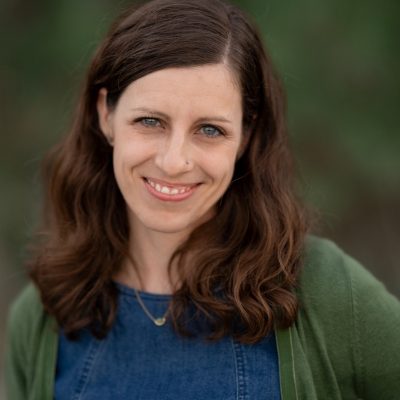
name: Franziska Tsufim
institution: Georgia Institute of Technology
Dr. Franziska Tsufim is a Marion L. Brittain Postdoctoral Fellow at the Georgia Institute of Technology, where she teaches first-year writing courses in the Writing and Communication Program. Her work on generative AI in the college writing classroom is part of her larger research project that studies help-seeking behaviors and self-perceived agency in historically marginalized student populations.
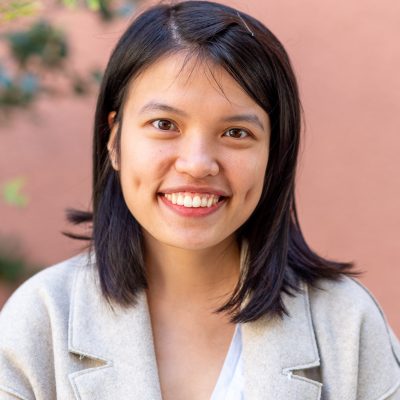
name: Ha Nguyen
institution: Utah State University
Ha Nguyen is an Assistant Professor in Instructional Technology and Learning Sciences at Utah State University. Her work is focused on designing and researching technologies to promote deeper STEM knowledge, competency, and skills for diverse learners. She has published in leading venues in learning analytics and education, including Computers & Education, British Journal of Educational Technology, and Journal of Learning Analytics. At USU, she teaches courses like Design Perspectives, Games & Learning, and Learning Analytics.

name: J. Kaleo Alladin
Haumana (student) to a Kahu M. Kalani Souza. His work focuses on building community capacity, cohesiveness, and resilience around projects that intersect food, nature, technology, and indigenous knowledge systems and spreading aloha through experiential learning.

name: Jacob Morris
institution: University of Louisville
University of Louisville English 105: Honors Composition Student, Spring 2023
Jacob Morris is an undergraduate student pursuing a degree in Computer Science at The University of Louisville. In his spare time, he enjoys writing computer programs and playing basketball. He also spends time with family and friends when not busy with school.

name: Jacob Taylor
institution: Utah State University
Jacob Taylor (they/them) is a master’s student at Utah State University specializing in creative nonfiction writing. They are interested in archival research, trauma writing, and mixed-genre writing.

name: Jenna Green
institution: Marquette University
Jenna Green (she/her) is a Teaching Assistant Professor and Assistant Director of Foundations Instruction at Marquette University. Her teaching and research focuses on digital and multimodal composing, literacy studies, and student success.
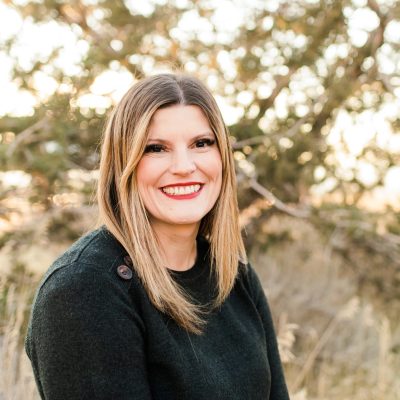
name: Jenn Grewe
institution: Utah State University
Dr. Jennifer Grewe (she/her) is an Associate Professor with the Department of Psychology at Utah State University. Dr. Grewe has taught thousands of undergraduate students in face to face and online courses. Currently, she is the Director of Connections, which is USU’s first year experience program and co-directs the undergraduate psychology program. In addition to the mentorship and teaching of undergraduate students, she also teaches a graduate level course on the topic of the teaching of psychology. She is the advisor for the local chapter of Psi Chi (International Psychology Honors Society) and is a consulting editor for the journal of the Teaching of Psychology. Dr. Grewe enjoys working with students in all levels of their career and loves being an Aggie!

name: Jennifer Johnson
institution: UC Santa Barbara
Jennifer K. Johnson (she/her) teaches first-year composition and various upper-division writing courses in the Writing Program at UC Santa Barbara, where she also works with new teachers of writing. Jennifer holds a Ph.D. in Composition and the TESOL from Indiana University of Pennsylvania. Her work has been published in several edited collections, including Threshold Conscripts: Rhetoric and Composition Teaching Assistantships (2023), The Invisible Professor: A Blueprint for Adjunct Faculty (2022), Standing at the Threshold: Working Through Liminality in the Composition and Rhetoric TAship (2021), and A Minefield of Dreams: Triumphs and Travails of Independent Writing Programs (2016). Her research interests include the relationship between composition and literature, independent writing programs, genre theory, and writing about writing. When she is not teaching or writing, her other interests include traveling, sailing, swimming, and spending time at the beach – preferably with a good book!

name: John Paul Tassoni
institution: Miami University
John Paul Tassoni (he/him/his) is a professor of English at Miami University. At Miami, he has served as Director of College Composition, University Director of Liberal Education, and Co-Coordinator of the Regionals Center for Teaching and Learning. He is currently the founding editor of Journal on Centers for Teaching and Learning. His own work has appeared in journals such as College Composition and Communication, Journal of Basic Writing, Pedagogy, WPA: Writing Program Administration, and Teaching English in the Two-Year College.

name: Josh Vogeler
institution: University of Louisville
University of Louisville English 105: Honors Composition Student, Spring 2023
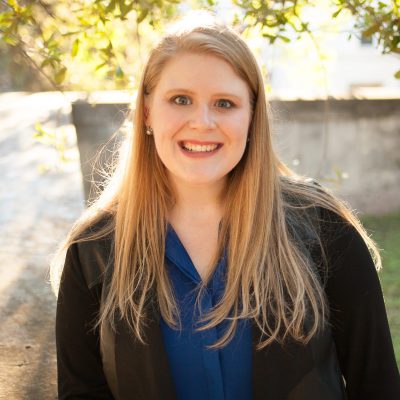
name: Julia Gossard
institution: Utah State University
Julia M. Gossard is Associate Dean for Research in the College of Humanities and Social Sciences as well as an Associate Professor of History at Utah State University. An award-winning educator and researcher, Julia is currently studying how college students interact with and use generative AI in the humanities classroom. She is the editor of Habits of Mind: Designing Courses for Student Success (USU, 2023) with Chris Babits.

name: Kolby Sanders
institution: University of Louisville
University of Louisville English 105: Honors Composition Student, Spring 2023
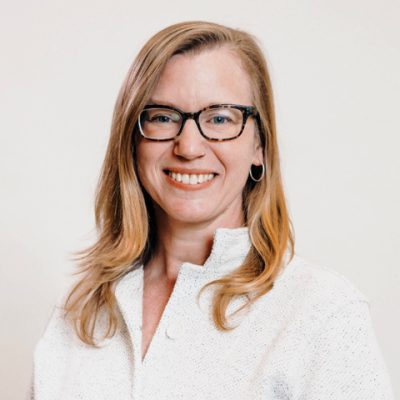
name: Kysa Nygreen
institution: University of Massachusetts Amherst
Kysa Nygreen (she, her, hers) is an Associate Professor in the Department of Teacher Education and Curriculum Studies at University of Massachusetts Amherst. Her research and teaching focus on racial and social justice in education, critical pedagogy, community-engaged research, and ethnographic methods. She is the author of These Kids: Identity, Agency, and Social Justice at a Last Chance High School (University of Chicago Press).
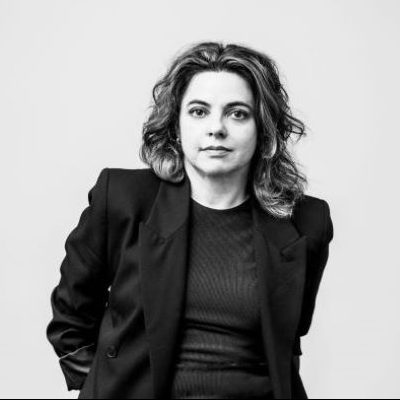
name: Lainie Pomerleau
institution: Georgia Institute of Technology
Dr. Lainie Pomerleau is a Marion L. Brittain Postdoctoral Fellow in the Writing and Communications Program at the Georgia Institute of Technology, where she teaches composition and technical and professional writing and communication. Her current work focuses on AI’s potential and ethical impact in the college writing classroom. Additional research explores the impact of popular beliefs about history and their impact on medievalism and speculative fiction, and as well as the tension between memorialization and commemoration in pre-modern life writing.
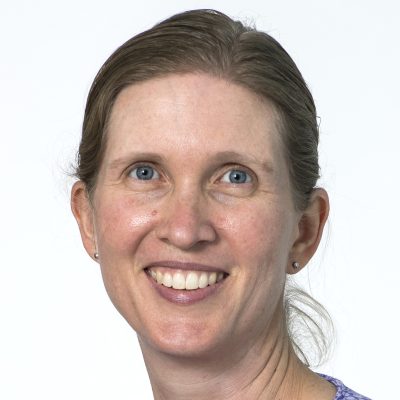
name: Laura Dumin
institution: Oklahoma State University
Dr. Laura Dumin obtained her PhD in English from Oklahoma State University in 2010. She is a professor in English and Technical Writing at the University of Central Oklahoma. She has been exploring the impact of generative AI on writing classrooms and runs a Facebook learning community to allow instructors to learn from each other https://www.facebook.com/groups/632930835501841
When she is not teaching, Laura works as a co-managing editor for the Journal of Transformative Learning, is a campus SoTL mentor, and directs the Technical Writing BA and advises the Composition and Rhetoric MA program. She has created four micro-credentials for the Technical Writing program and one for faculty who complete the AI workshop on campus.
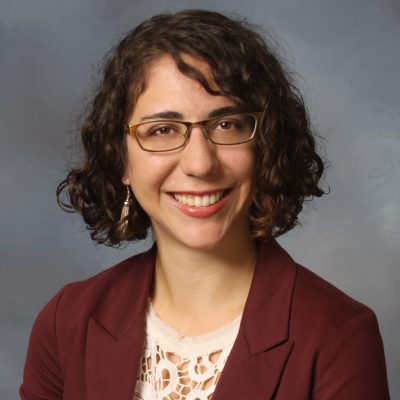
name: Lillian Campbell
institution: Marquette University
Lillian Campbell (she/her) is Associate Professor of English and Director of Foundations Instruction at Marquette University. Her research focuses on rhetorics of health and medicine, feminist rhetorics, and embodied writing pedagogy and can be found in Written Communication, Technical Communication Quarterly, and Composition Forum, among others. She is currently working on a book that examines how newcomers learn rhetorical body work in the fields of nursing, physical therapy, and tele-observation.
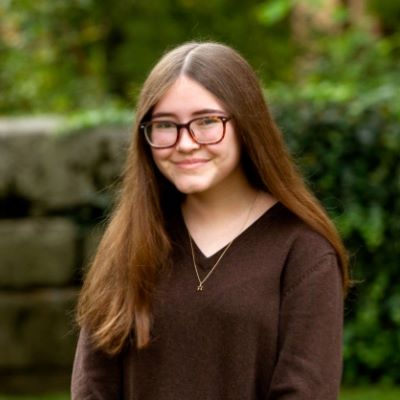
name: Lydia Peach
institution: University of Louisville

name: Lydia Wilkes
institution: Auburn University
Lydia Wilkes (she/they) is assistant professor and writing program administrator at Auburn University. Her publications include the coedited collections Rhetoric and Guns, and Toward More Sustainable Metaphors of Writing Program Administration. Among many other things, she coedits the Proceedings of the Annual Computers and Writing Conference where she sometimes sees submissions on AI.
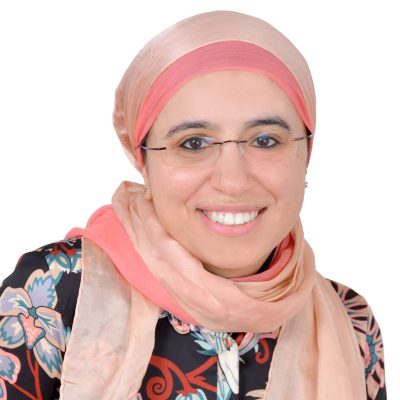
name: Maha Bali
institution: American University
Maha Bali is a professor of practice at the Center for Learning and Teaching at the American University in Cairo. She holds a PhD in Education and MEd in eLearning both from the University of Sheffield in the UK, and a BSc in Computer Science from the American University in Cairo. She is co-facilitator of Equity Unbound, which organizes intercultural global professional learning opportunities for educators and students. She blogs at https://blog.mahabali.me.
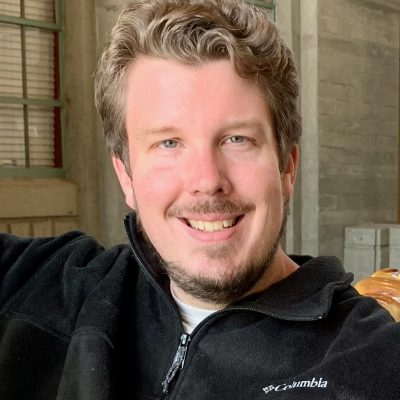
name: Marc Watkins
institution: University of Mississippi
Marc Watkins is an Academic Innovation Fellow, Lecturer of Writing and Rhetoric, and serves as the Director of the AI Summer Institute for Teachers of Writing at the University of Mississippi. He cochairs the AI working group within his department and serves as a liaison with other departments on campus, exploring generative AI’s impact on teaching and learning. In addition to being awarded a Pushcart Prize, Marc has been awarded a 2018 Blackboard Catalyst Award for Teaching and Learning, a WOW Fellowship, and a Sarah ISOM Fellowship. His research includes OER, open pedagogy, creative writing, digital humanities, AI in education, and grant writing.
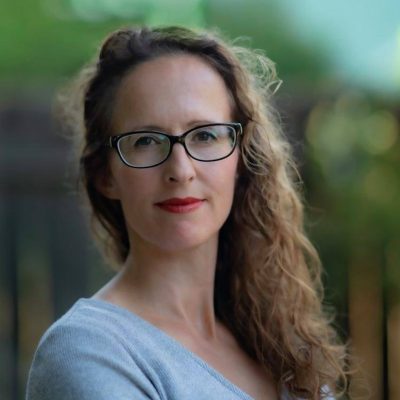
name: Mary Silva
institution: Ithaca College
Mary Lourdes Silva (she/her) is Associate Professor of Writing and Director of First-Year Writing at Ithaca College. She received a PhD in Language, Literacy, and Composition Studies from UC, Santa Barbara, as well as her Masters of Fine Arts in Creative Nonfiction from Fresno State. Her past and current research examines the citation practices of first-year college writing students; pedagogical use of multimodal and multimedia technologies and practices; implementation of institutional ePortfolio assessment; gender/race bias in education; movement-touch literacy as a modality to teach reflective thinking in first-year writing; and the psychological and financial cost of faculty compelled to review biased student evaluations of teaching. She is also a community organizer and teacher in the upstate New York Argentine tango community.
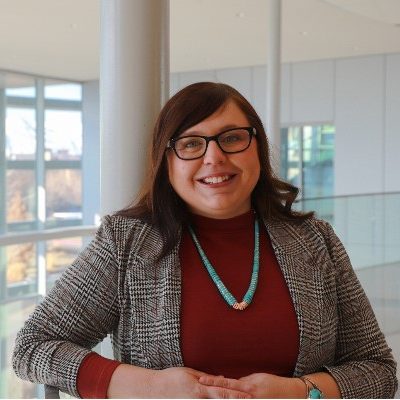
name: Megan Hamilton
institution: Weber State University
Dr. Megan Hamilton is a scholar-activist of Anishinaabe and European ancestry, and citizen of the White Earth Nation. She received her Ph.D. in Instructional Technology & Learning Sciences from Utah State University in 2023. She is also Assistant Professor in Teacher Education at Weber State University. Throughout her career, she has actively sought academic spaces where Indigenous perspectives and histories can be embraced in K-12 and post-secondary educational settings. Her scholarly work is at the intersection of social justice, education, and cultural competence.
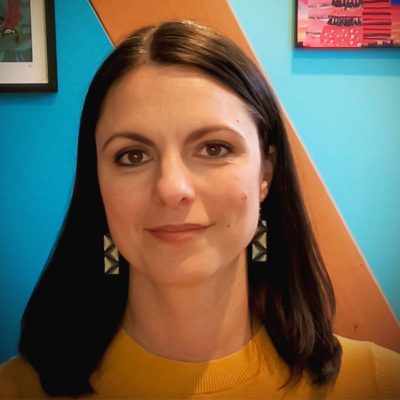
name: Melissa Tehee
institution: Utah State University
Dr. Melissa Tehee, J.D., Ph.D, is a citizen of the Cherokee Nation. She is an associate professor at Utah State University in the Department of Psychology, Director of the American Indian Support Project, and Assistant Director of the Mentoring and Encouraging Student Academic Success program for Native American students. She earned dual degrees in Clinical Psychology, Policy, and Law (Ph.D./J.D.) with a certificate in Indigenous Peoples Law and Policy at the University of Arizona. Much of her scholarship and teaching is focused on Cultural Competence development and Indigenous visibility, representation, belonging, and wellness.

name: Michael Christiansen
institution: Utah State University
Mike is from Logan. He earned his chemistry B.S. from USU in 2004, received his PhD at BYU in 2010, did postdoctoral work at CSU, and joined USU Uintah Basin in 2011. Mike has an infectious passion for teaching that infuses his students with an enthusiasm for chemistry. Mike often says, “Teaching isn’t just what I do. It’s who I am.” Mike’s overlapping teaching and research interests include flipped learning, as well as embedding student-designed research projects into his undergraduate lab courses.
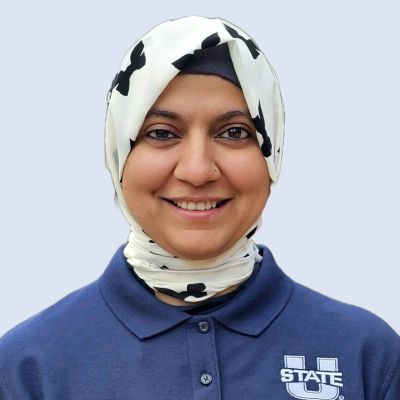
name: Mudasir Mustafa
institution: Utah State University
Mudasir Mustafa, a Ph.D. candidate in Sociology, focuses on understanding disparities in physical and mental well-being, maternal and child health, digital divide and role of technology, and the complex interplay of racial and sexual identities. Her dissertation explores the role of maternal adverse childhood experiences in non-live births, including miscarriages, stillbirths, and abortions.
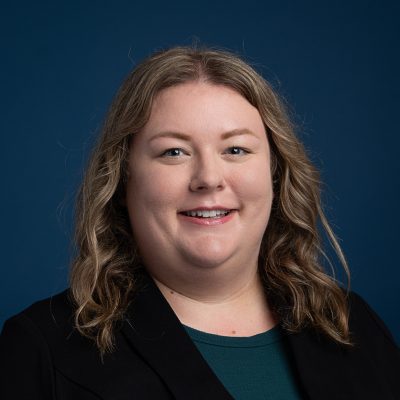
name: Nicole Bungert
institution: Marquette University
Nicole Bungert (she/her) is the Student Success Librarian at Marquette University Raynor Memorial Libraries. She has supported first-year writing programs since 2014. Her research focuses on information literacy teaching, learning, and assignment design.

name: Parker Routt
institution: University of Louisville
University of Louisville English 105: Honors Composition Student, Spring 2023
Parker is a sophomore at the University of Louisville seeking a bachelor’s degree in Industrial Engineering at J.B Speed School. He is also a Henry Vogt Scholar and Eagle Scout. In his free time, Parker enjoys singing and challenging his mind and body by running as a member of Orienteering Louisville.
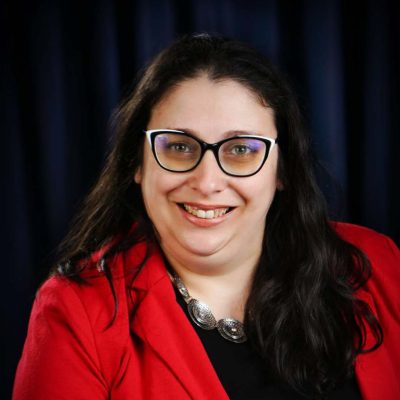
name: Reba Wissner
institution: Columbus State University
Reba Wissner is assistant professor of musicology at Columbus State University. She has published and presented on seventeenth-century Venetian opera, Italian American immigrant musical theater, and film, video game, and television music. Dr. Wissner is committed to accessibility and helping others be better pedagogues. She holds Level 1, 2 and 3 Credentials in Universal Design for Learning from UDL-IRN. She has published on pedagogy in the Journal of Music History Pedagogy, Engaging Students: Essays in Music Pedagogy, College Music Symposium, Teaching History: A Journal of Methods and several edited collections. She was the 2022 recipient of Columbus State University’s Scholarship of Teaching and Learning Award and named a Governor’s Teaching Fellow at the Louise McBee Institute of Higher Education at the University of Georgia in 2022.
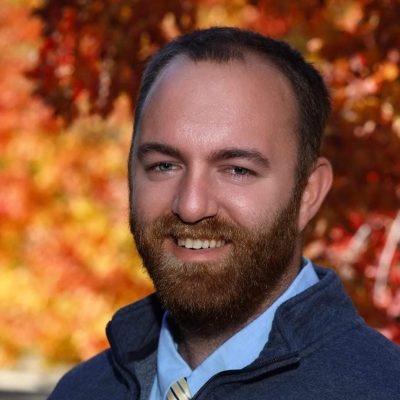
name: Reed Hepler
institution: College of Southern Idaho
Reed Hepler is the Digital Initiatives Librarian for the College of Southern Idaho and an M.Ed. student at Idaho State University in the Instructional Design and Technology program. He obtained a Master’s Degree in Library and Information Science, with emphases in Archives Management and Digital Curation, from Indiana University. He received a Bachelor’s Degree in History with minors in Anthropology and Religious Studies as well as a Museum Certificate. He has worked at nonprofits, corporations, and educational institutions encouraging information literacy and effective education. Combining all of these degrees and experiences, Reed strives to promote ethical librarianship and educational initiatives.
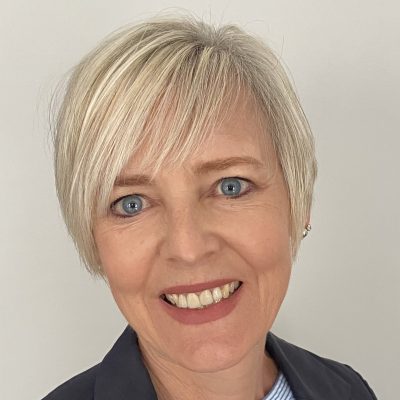
name: Ritamarie Hensley
institution: Simmons University
Ritamarie (Re) Hensley is always looking for ways to leverage technology to enhance learning. As an instructional designer and adjunct instructor at Simmons University, she partners with faculty to build engaging online courses and assignments. After attaining her EdD in Leadership, she transitioned from teaching high school English to instructional designer. She understands how to translate effective in-person teaching strategies to flexible digital learning experiences. Having seen firsthand the time burdens on instructors, Re is particularly interested in using AI to improve work processes so faculty have more time to focus on students. She stays on top of the latest AI capabilities and considers how they can save effort while maintaining quality. Understanding that AI in education marks both a significant change and a disruption, Re makes it a priority to ease instructors into understanding the many applications AI offers. She consults with them to evaluate needs, demonstrate AI functionality, and slowly integrate selected uses at a comfortable pace. Re finds small wins go a long way toward gaining faculty buy-in. With AI geared to suit teaching and learning goals, professors can spend less time on administrative tasks, and more time engaging students.
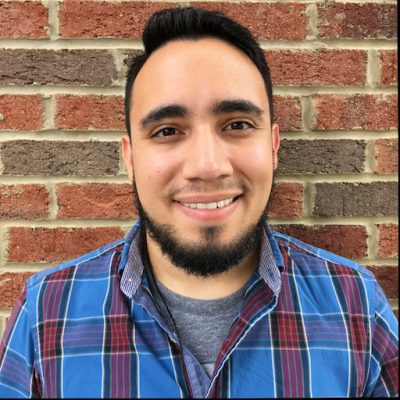
name: Rogelio Cardona-Rivera
institution: University of Utah
Dr. Rogelio E. Cardona-Rivera is an Assistant Professor in the Division of Games, and Adjunct Assistant Professor of Computing and Psychology at the University of Utah. At Utah, they direct the Laboratory for Quantitative Experience Design, a community of scholars who are establishing cognitive principles and developing artificial intelligence technologies to support the design of playful artifacts that help convey stories. Cardona-Rivera is the recipient of an NSF CAREER award, and has served as a Department of Energy Computational Science Graduate Fellow and National GEM Fellow. In 2017, they were recognized as a “New and Future Education in AI” by the Association for the Advancement of Artificial Intelligence (AAAI). Rogelio received the M.Sc. and Ph.D. in Computer Science with a minor in Cognitive Science at North Carolina State University, and the B.Sc. in Computer Engineering from the University of Puerto Rico at Mayagüez.

name: Rosa Thornley
institution: Utah State University
Rosa Thornley (she/her) is a Lecturer for the English Department. She earned an MS in American Studies with a Folklore emphasis from the Department of English at Utah State University, and a BS in Business Administration from the Department of Management, with an American Studies minor from the Department of English at Utah State University. She teaches composition courses, along with Farm Literature and Culture, and Literature by Women. Her research interests are improving metacognitive skills in literature and composition students, and folkloric aspects of the vernacular architecture found in Icelandic sheep réttir.
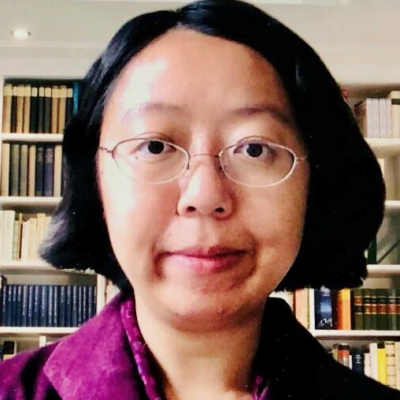
name: Ruth Li
institution: Alfaisal University
Ruth Li is an assistant professor of English at Alfaisal University in Riyadh, Saudi Arabia. Her research and teaching interests include writing pedagogy and assessment, educational linguistics, discourse analysis, and the teaching of literature and creative writing. Her work appears or is forthcoming in College Composition and Communication, Assessing Writing, the Journal of Interactive Technology and Pedagogy, and the Journal of Response to Writing.

name: Samantha Yoder
institution: Utah State University
Samantha Yoder is a PhD student at Utah State University and studies culture in the workplace, including diversity, equity, inclusion, and accessibility training and policy.
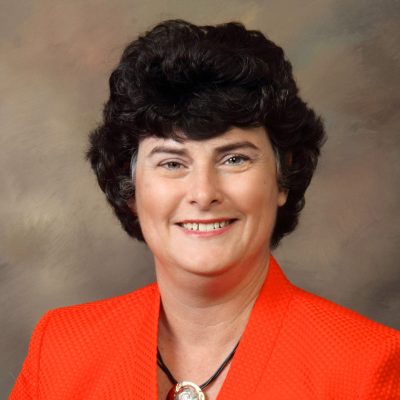
name: Susan Codone
institution: Mercer University
Susan Codone, Ph.D., is a Professor of Technical Communication and the Director of the Center for Teaching and Learning at Mercer University in Macon, GA. Dr. Codone provides faculty development to all full and part-time faculty at Mercer University, especially in the area of generative AI.
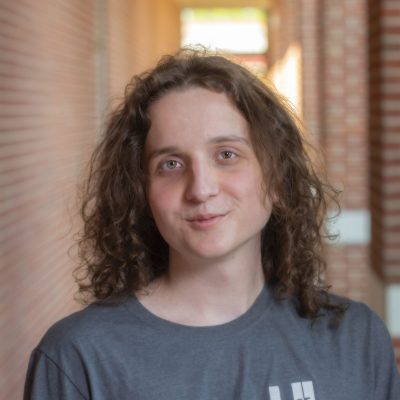
name: Veronica Pulley
institution: University of Louisville
University of Louisville English 105: Honors Composition Student, Spring 2023
Veronica Pulley is a sophomore Anthropology student at the University of Louisville seeking a minor in Political Science. In previous years she has worked with campus political organizations to fight for the rights of LGBTQIA+ people statewide and beyond. Currently, she works for the university honors department and is a member of the Jones Scholars, a UofL scholarship research program. After graduation she hopes to work with museums and assist with their history or anthropology departments, and hopefully go on archeological digs to further our understanding of past human culture. She also hopes to continue work as an activist throughout her life and spend her life fighting for a more equal and just world.

name: Walker Smith
institution: Goucher College
Walker P. Smith (he/him) is Assistant Professor of Rhetoric and Composition at Goucher College in Baltimore, MD., where he teaches courses in academic writing, professional and technical communication, and queer rhetorics. His research explores critical theories and histories of rhetoric, religion, and sexuality across technical documents, films, and archival ephemera. His work appears in Peitho, Across the Disciplines, and Unsettling Archival Research (Southern Illinois University Press).
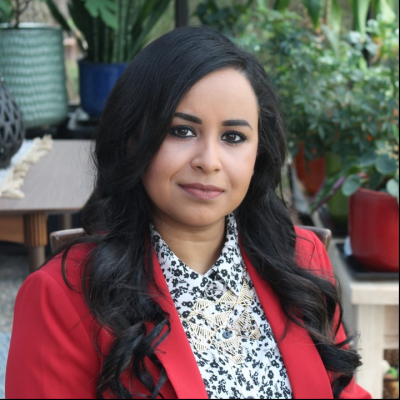
name: Tazin Daniels
institution: University of Michigan
Dr. Daniels is Associate Director in the Center for Research on Learning and Teaching at the University of Michigan. She has a doctorate in medical anthropology and her current scholarship focuses on promoting equity and inclusion in teaching and in faculty development. She works with universities to build stronger programs and practices to ensure all students can be successful.


